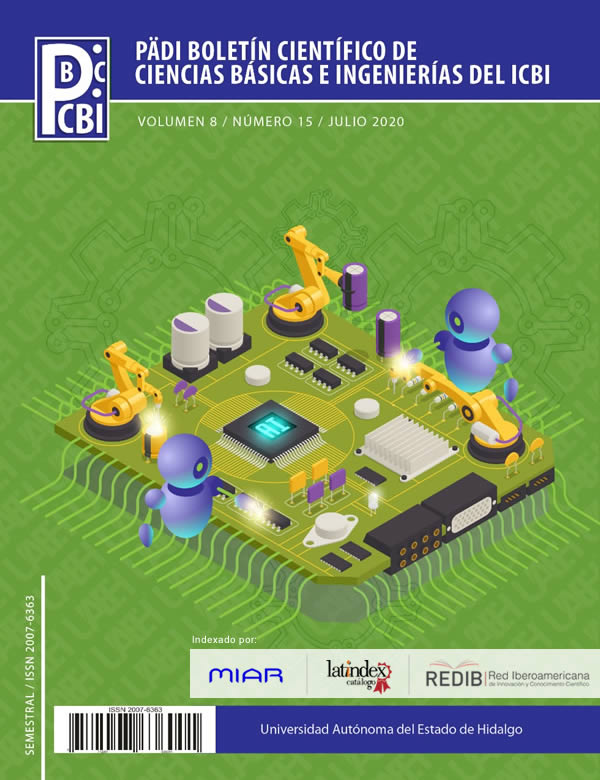¿Qué le pasa a mi auto?
DOI:
https://doi.org/10.29057/icbi.v8i15.5777Palabras clave:
Antidetonante, número de octano, calidad de la gasolina, nafta, reformación catalítica, catalizadorResumen
Es probable que quienes han conducido un vehículo automotriz hayan detectado ruidos anormales en el motor, semejantes a pequeñas explosiones en el interior. Efectivamente, los vehículos de encendido por chispa suelen experimentar detonaciones prematuras en el pistón, lo que resulta severamente perjudicial para los componentes internos del motor y reduce su rendimiento. Este fenómeno está directamente relacionado con la calidad del combustible suministrado, que, entre otros factores, está determinado por el octanaje. A mayor número de octano, mayor será la calidad de la gasolina y menor será el daño en el motor. En el presente trabajo se describe el proceso de reformación catalítica, con el cual se incrementa el número de octano de la gasolina, así como la importancia de optimizar dicho proceso para el cuidado del motor y del medio ambiente.
Descargas
Citas
Aboites, J., J. M. Domíngues and T. Beltrán (2004). La triada innovadora: investigación y desarrollo en catálisis. México, Siglo XXI.
Alvarado, J. G., J. G. Delgado and H. R. Medina (2015). "Rol de la Química Orgánica en los procesos de conversión de hidrocarburos." Educación Química 26(4): 288-298.
Antos, G. and A. Aitani (2004). Catalytic Naphta Reforming. Illinois, Marcel Dekker.
Antos, G. J. (1976). Dehydrocyclization with an acidic multimetallic catalytic composite. Esados Unidos, Honeywell UOP LLC. 4032587.
BP (2019). BP Energyutlook 2019. Reino Unido, British Petroleum: 73.
Carey, F. and R. Sundberg (2007). AdvancedOrganicChemistry. New York, Springer.
Castañeda, D., S. Jorge and P. Sedano (2019). Derivados del Petróleo. México, CONUEE.
Crouse, W. (1993). Mecánica del Automóvil. España, Marcombo.
Chen, C., P. Pal, M. Ameen, D. Feng and H. Wei (2020). "Large-eddy simulation study on cycle-to-cycle variation of knocking combustion in a spark-ignition engine." Applied Energy 261: 114447.
Chuzlov, V., G. Nazarova, E. Ivanchina, E. Ivashkina, I. Dolganova and A. Solopova (2019). "Increasing the economic efficiency of gasoline production: Reducing the quality giveaway and simulation of catalytic cracking and compounding." Fuel Processing Technology 196: 106139.
Elizalde, I. and J. Ancheyta (2015). "Dynamic modeling and simulation of a naphtha catalytic reforming reactor." Applied Mathematical Modelling 39(2): 764-775.
Elsayed, H. A., M. F. Menoufy, S. A. Shaban, H. S. Ahmed and B. H. Heakal (2017). "Optimization of the reaction parameters of heavy naphtha reforming process using Pt-Re/Al2O3 catalyst system." Egyptian Journal of Petroleum 26(4): 885-893.
Eriksson, L. and L. Nielsen (2014). Modeling and Control of Engines and Drivelines. Chennai, Wiley.
Hougen, A., K. Watson and R. Ragatz (2005). Principios de los Procesos Químicos. Barcelona. Barcelona, Reverté.
Iranshahi, D., R. Saeedi, K. Azizi and M. Nategh (2017). "A novel integrated thermally coupled moving bed reactors for naphtha reforming process with hydrodealkylation of toluene." Applied Thermal Engineering 112: 1040-1056.
Jafari, M., R. Rafiei, S. Amiri, M. Karimi, D. Iranshahi, M. R. Rahimpour and H. Mahdiyar (2013). "Combining continuous catalytic regenerative naphtha reformer with thermally coupled concept for improving the process yield." International Journal of Hydrogen Energy 38(25): 10327-10344.
Kennepohl, D. (2019) "Gasoline: A deep look."
Kluksdahl, H. (1968). Reforming a sulfur-free naphtha with a platinum-rhenium catalyst. Estados Unidos, Chevron Research and Technology Co.
Koksharov, A. G., E. D. Ivanchina, S. A. Faleev and A. I. Fedyushkin (2015). "The Way of Increasing Resource Efficiency of Naphtha Reforming Under Conditions of Catalyst Acid and Metal Activity Balance by Mathematical Modeling Method." Procedia Engineering 113: 1-7.
Mallma, P., H. Lamadrid-Figueroa, G. Angeles, H. Riojas and M. M. Tellez Rojo Solis (2007). IMPACT OF THE ELIMINATION OF LEAD IN GASOLINE ON THE BLOOD LEAD CONCENTRATION OF CHILDREN OF MEXICO CITY.
McCallister, K. R. (1971). Francia. 2078056.
Muñoz, M. and A. Rovira (2014). Máquinas Térmicas. Madrid, Universidad Nacional de Educación a Distancia.
Olah, G. and Á. Monlar (2003). Hydrocarbon Chemestry. New Jersey, Wiley.
Primo, E. (1995). Química orgánica básica y aplicada: de la molécula a la industria. vol 2, Reverté.
Raffinage, F. (1969). Francia. 2031984.
Rodríguez, M. A. and J. Ancheyta (2011). "Detailed description of kinetic and reactor modeling for naphtha catalytic reforming." Fuel 90(12): 3492-3508.
Saeedi, R. and D. Iranshahi (2017). "Multi-objective optimization of thermally coupled reactor of CCR naphtha reforming in presence of SO2 oxidation to boost the gasoline octane number and hydrogen." Fuel 206: 580-592.
Sarathy, S. M., A. Farooq and G. T. Kalghatgi (2018). "Recent progress in gasoline surrogate fuels." Progress in Energy and Combustion Science 65: 67-108.
Sinfelt, J. H. (1976). Estados Unidos.
Treese, S., P. R. Pujadó and D. Jones (2015). Handbook of Petroleum Processing. Illinois, Springer.
Wang, Z., H. Liu and R. D. Reitz (2017). "Knocking combustion in spark-ignition engines." Progress in Energy and Combustion Science 61: 78-112.
Wauquier, J. P. (2004). El refino del petróleo. Petróleo crudo. Productos petrolíferos. Esquemas de fabricación. España, Díaz de Santos, S.A.
Yang, Q., S. Shao, Y. Zhang, H. Hou, C. Qin, D. Sun and Y. Liu (2020). "Comparative study on life cycle assessment of gasoline with methyl tertiary-butyl ether and ethanol as additives." Science of The Total Environment: 138130.
Yusuf, A. Z., Y. M. John, B. O. Aderemi, R. Patel and I. M. Mujtaba (2019). "Modelling, simulation and sensitivity analysis of naphtha catalytic reforming reactions." Computers & Chemical Engineering 130: 106531.
Zhang, P., Y. Yang, Z. Li, B. Liu and C. Hu (2019). "Preparation, characterization and naphtha aromatization performance of the catalytic reforming catalyst Pt/MY (M = Mg, Ba or Ce)." Catalysis Today.



















